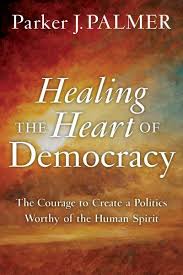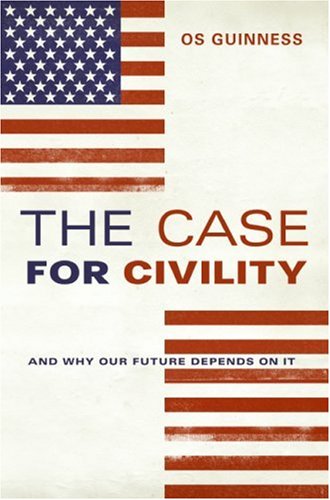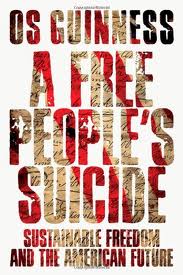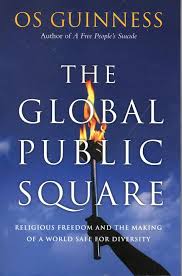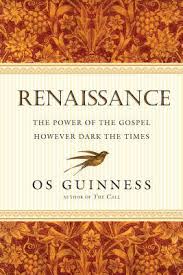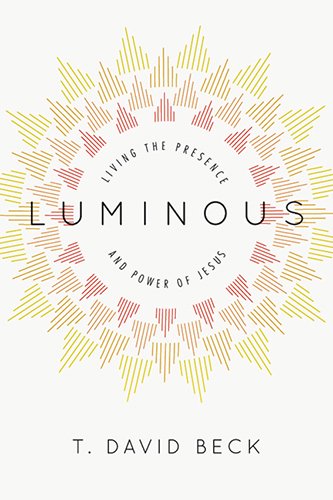For those who are curious, who had prayed or wondered, our third annual Hearts & Minds Pittsburgh Summer Lecture with James K. A. Smith went fabulously. He’s such a deep and well-read philosopher, but has such a dynamic, passionate presence. We had a great crowd, had the chance to greet (or miss greeting, as the case may be) old college friends, CCO staff alum, students we’ve met at Jubilee or OCBP, and an array of friends from the greater Western Pennsylvania world. Kudos to folks like Lisa Slayton and her team at Pittsburgh Leadership Foundation/Serving Leaders and friends at Geneva College for helping to promote our work. And, of course, the CCO staff, old and brand new, had been gathering at Robert Morris University anyway, so they were out in force. What good folks they are!
At the public event Jamie talked about his new book How (Not) To Be Secular: Reading Charles Taylor (Eerdmans; $16.00.) Smith guided us into a heady conversation — what do we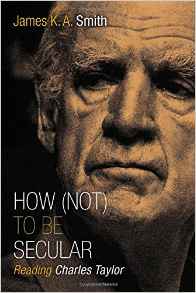 mean by the secular, are we in a secular age, and what does that even mean, and how can the heavy Canadian philosopher Charles Taylor help us? Nicely, though, he helped us along the way (yes, he quoted The Postal Service and Wallace’s Infinite Jest and British novelist Julian Barnes.) His entry into all this was the recent conversation about the “nones” (that is, those who check “none” on the survey’s asking for religious affiliation.) These folk, however, are often also those who claim to be “spiritual but not religious.” Oh my, this was an important stuff for anyone interested in cultural discourse, understanding the times, or who may be interested in the religious landscape, congregational health, evangelism, or a missional vision of relevant ministry in our postmodern contexts. Pastors? Elders? Evangelists? Artists? Journalists? Youth Workers? Christian teachers? College administrators? Parents? Yes! Yes! Yes!
mean by the secular, are we in a secular age, and what does that even mean, and how can the heavy Canadian philosopher Charles Taylor help us? Nicely, though, he helped us along the way (yes, he quoted The Postal Service and Wallace’s Infinite Jest and British novelist Julian Barnes.) His entry into all this was the recent conversation about the “nones” (that is, those who check “none” on the survey’s asking for religious affiliation.) These folk, however, are often also those who claim to be “spiritual but not religious.” Oh my, this was an important stuff for anyone interested in cultural discourse, understanding the times, or who may be interested in the religious landscape, congregational health, evangelism, or a missional vision of relevant ministry in our postmodern contexts. Pastors? Elders? Evangelists? Artists? Journalists? Youth Workers? Christian teachers? College administrators? Parents? Yes! Yes! Yes!
In the morning, Jamie had given one of the best talks I’ve heard in quite a while, pouring his teacherly heart out instructing CCO staff about the sorts of things he writes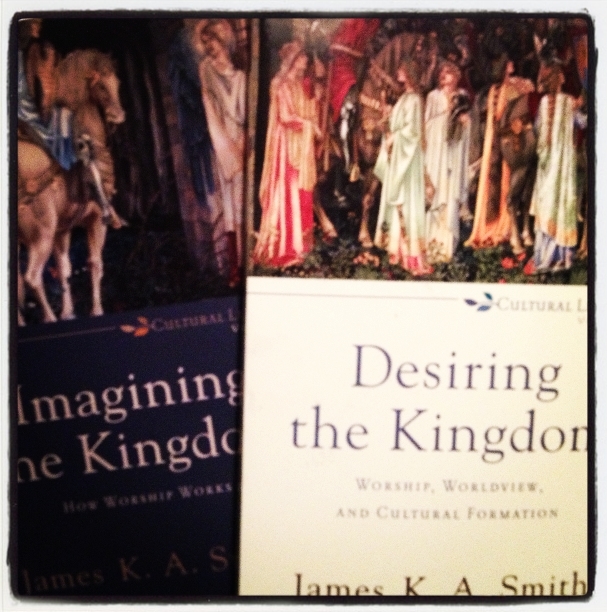 about in great detail in Desiring the Kingdom: Worship, Worldview, and Cultural Formation and Imagining the Kingdom: How Worship Works (both Baker Academic; $23.00 each.) If you want to understand what we’re about here at Hearts & Minds and our own unique heritage and passions, these books certainly get at that well. We were just thrilled to have him teach at CCO staff seminar, and glad that CCO is the sort of organization that wants to be shaped by this Calvin College prof. We gave a little pitch for his work at the neo-Calvinist/Kuyperian journal of public theology, Comment magazine, too. I don’t write for them anymore, but still promote their classy quarterly journal whenever I can. So, again, thanks be to God.
about in great detail in Desiring the Kingdom: Worship, Worldview, and Cultural Formation and Imagining the Kingdom: How Worship Works (both Baker Academic; $23.00 each.) If you want to understand what we’re about here at Hearts & Minds and our own unique heritage and passions, these books certainly get at that well. We were just thrilled to have him teach at CCO staff seminar, and glad that CCO is the sort of organization that wants to be shaped by this Calvin College prof. We gave a little pitch for his work at the neo-Calvinist/Kuyperian journal of public theology, Comment magazine, too. I don’t write for them anymore, but still promote their classy quarterly journal whenever I can. So, again, thanks be to God.
I have a hunch that there are those who may appreciate our recommendations of these books by Smith but are either intimated by their intellectual heft, or the size and price.
You know we understand that, and although these are important volumes, we are very (very)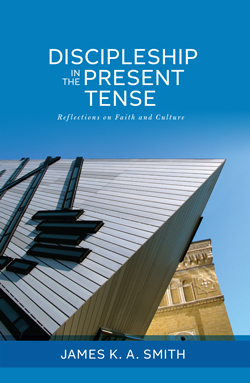 eager to promote the best little collection of shorter pieces by Smith, some of them covering much of this ground — reviews, essays, sermons, speeches, articles and the like. I highly recommend Discipleship in the Present Tense: Reflections on Faith and Culture by James K. A. Smith (Calvin College Press; $14.00) as a great anthology and primer and companion for your own journey towards a deeper and more meaningful daily walk through the world. Although I love almost all of these many chapters, there are one or two that are literally worth the price of admission.
eager to promote the best little collection of shorter pieces by Smith, some of them covering much of this ground — reviews, essays, sermons, speeches, articles and the like. I highly recommend Discipleship in the Present Tense: Reflections on Faith and Culture by James K. A. Smith (Calvin College Press; $14.00) as a great anthology and primer and companion for your own journey towards a deeper and more meaningful daily walk through the world. Although I love almost all of these many chapters, there are one or two that are literally worth the price of admission.
If you are a preacher or teacher, by the way, you will get some mileage out of the introduction, which exegetes the ancient/future connections shown on the very cover of the book — a new modern wing of an art museum built out of but refreshing the tradition of the older style. That’ll preach! And if you are a fan of books about cultural engagement and social reforms, you should know he has a very good chapter which explores the thesis and implications in the much-discussed Oxford University Press book, To Change the World by James Davison Hunter which takes him to task a bit.) And there is that chapter, an open letter to praise bands. So, yes! This is very good.
* * *
Here, then, are a few quite readable books that might relate to Smith’s two lectures. If you don’t have the aforementioned Smith volumes you should get them from us. (And if you take my advice here, but get them elsewhere, well, that’s just wrong.)
B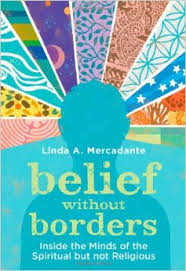 elief Without Borders: Inside the Minds of the Spiritual but not Religious Linda A. Mercadante (Oxford University Press) $29.95 This is a very recent and notable book filled with real conversations, interviews and observations with some conclusions drawn from this primary source research. Perhaps it was Diana Butler Bass in her controversial but very important Christianity After Religious: The End of the Church and the Birth of a New Spiritual Awakening who really best described this trend, and gave significant energy to wondering how to best do ministry among that cohort, in these times. Butler Bass offers a rave review to this scholarly volume: “For those who think that being ‘spiritual but not religious’ is intellectually vague,” she writes, “it is time to think again…. Linda Mercadante explores the beliefs of the religiously unaffiliated regarding God, sin, community, the afterlife, and ethics and finds people living “between” the worlds of secularism and traditional faith.”
elief Without Borders: Inside the Minds of the Spiritual but not Religious Linda A. Mercadante (Oxford University Press) $29.95 This is a very recent and notable book filled with real conversations, interviews and observations with some conclusions drawn from this primary source research. Perhaps it was Diana Butler Bass in her controversial but very important Christianity After Religious: The End of the Church and the Birth of a New Spiritual Awakening who really best described this trend, and gave significant energy to wondering how to best do ministry among that cohort, in these times. Butler Bass offers a rave review to this scholarly volume: “For those who think that being ‘spiritual but not religious’ is intellectually vague,” she writes, “it is time to think again…. Linda Mercadante explores the beliefs of the religiously unaffiliated regarding God, sin, community, the afterlife, and ethics and finds people living “between” the worlds of secularism and traditional faith.”
Phyllis Tickle — ever the book woman! — compares this to the award-winning Habits of the Heart by Robert Bellah, saying that it offers “a brilliant narrative introduction to the theology and belief systems of the “spiritual but not religious” among us. Highly accessible and rife with insightful commentary Belief Without Borders is far and away the richest study I have seen to date of the SBNR and is destined to become a classic in the field.” These in-depth interviews and Mercadante’s evaluation offers a much-needed contribution to both the role of belief in contemporary American culture but also to the ways and work of the local parish. I think this is important, and wish I could have showed it to the crowd gathered to hear Smith talk about Taylor (especially those who have reason to work particularly with this rising population.) It would have gone nicely with his great question, “How is it that we live in a culture that gives us both Elizabeth Gilbert and Richard Dawkins?” Exactly.
Dr. Linda Mercadante is Professor of Historical Theology at the Methodist Theological School in Ohio and is an ordained minister in the Presbyterian Church (USA.)
T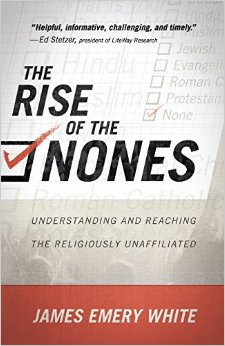 he Rise of the Nones: Understanding and Reaching the Religiously Unaffiliated James Emery White (Baker Books) $15.99 I am a fan of James Emery White — his two IVP books, Serious Times and Christ Among the Dragons are very good at pondering our moment with a grave awareness of our cultural ethos and ways to faithfully “engage the culture” with the newspaper in one hand, as they say, and the Scriptures in the other. His little (IVP) book A Mind for God is one I often share, sometimes give as a gift, and from which I sometimes read out loud in workshops and sermons. White is a solid evangelical, mega-church pastor, reads the times well, and is a lively, clear writer. Although I haven’t read it, I’ve been told his recent one The Church in an Age of Crisis: 25 New Realities Facing Christianity is also quite good, a sobering, basic cultural overview pitched to ordinary church leaders.
he Rise of the Nones: Understanding and Reaching the Religiously Unaffiliated James Emery White (Baker Books) $15.99 I am a fan of James Emery White — his two IVP books, Serious Times and Christ Among the Dragons are very good at pondering our moment with a grave awareness of our cultural ethos and ways to faithfully “engage the culture” with the newspaper in one hand, as they say, and the Scriptures in the other. His little (IVP) book A Mind for God is one I often share, sometimes give as a gift, and from which I sometimes read out loud in workshops and sermons. White is a solid evangelical, mega-church pastor, reads the times well, and is a lively, clear writer. Although I haven’t read it, I’ve been told his recent one The Church in an Age of Crisis: 25 New Realities Facing Christianity is also quite good, a sobering, basic cultural overview pitched to ordinary church leaders.
Now, he has taken some of that passion to understand the times, and offers us a quick and easy overview of the “nones.” Again: the single fastest-growing religious group of our time is those who check the box next to the word “none” on national surveys. In America, this is nearly 20% of the population. And most churches are doing very little to reach them with the gospel. And, it seems, what intentional effort we’ve made, has been not too fruitful. (I applaud, by the way, those who have used You Lost Me: Why Young Christians Are Leaving the Church… and Rethinking Faith by David Kinnaman — you know we brought him to Dallastown a few years ago to talk about that stellar book, and it is still very, very valuable, as is the DVD curriculum which we also sell. It is about young adults who have left the church, but who often still see themselves as Christian, or at least some kind of religious.)
This new Rise of the Nones book by James Emery White gives you the important definitions and data you need: exactly who are the unaffiliated? What caused this seismic shift in our culture? And it offers ways churches can more effectively reach these people, insights that are wise and reliable — the sort of relevant orthodox vision I think many of our churches need to explore.
Here is church growth and church planting guru Ed Stetzer:
“In an era of increasing complexity and religious apathy, James Emery White has written a book that is helpful, informative, challenging, and timely. Those who care about communicating the gospel in this complex culture and think the church must regroup and re-engage should read Rise of the Nones.”
T each us To Want: Longing, Ambition, & the Life of Faith Jen Pollock Michel (IVP/Crescendo/her-meneutics) $16.00 I stood up in front of CCO staff telling them how good this one was, glad that it so nicely dove-tailed with Smith’s staff seminar lecture on Desiring the Kingdom. and was, further, just a moving, delight to read. In that lecture, of course, he insisted that we are not merely “brains on a stick” and a wholistic anthropology must lead us to pedagogy and methods of ministry that honor our deepest heart/gut desires. Worship (and worldview formation) shapes our longings, teaches us to love (but what?) Of course, the secular liturgies and ideologies of the day do this, too, so our habits are often shaped less by the things of God, and more by the longings drawn out by the secularized forces and habits learned (at the mall, most obviously?) So Smith is all about desire, which he gets from Augustine, by the way.
each us To Want: Longing, Ambition, & the Life of Faith Jen Pollock Michel (IVP/Crescendo/her-meneutics) $16.00 I stood up in front of CCO staff telling them how good this one was, glad that it so nicely dove-tailed with Smith’s staff seminar lecture on Desiring the Kingdom. and was, further, just a moving, delight to read. In that lecture, of course, he insisted that we are not merely “brains on a stick” and a wholistic anthropology must lead us to pedagogy and methods of ministry that honor our deepest heart/gut desires. Worship (and worldview formation) shapes our longings, teaches us to love (but what?) Of course, the secular liturgies and ideologies of the day do this, too, so our habits are often shaped less by the things of God, and more by the longings drawn out by the secularized forces and habits learned (at the mall, most obviously?) So Smith is all about desire, which he gets from Augustine, by the way.
This beautiful new book, almost written as a memoir, attends to this vital question of how we come to love the things we do, and the ways we do, and asks what we should do with our desires. As a woman, particiularly (but written for anyone) she asks big questions about her longings, her passions, her body, her vocation… it is marvelous, rich stuff.
The Gospel Coalition blogger Bethany Jenkins (who reads quite a lot, I happen to know) writes of it, “Seriously, one of the most beautiful nonfiction books I have ever read.” The very impressive writer Leslie Leyland Fields says, “I’ve been waiting for this book for a very long time.”
And Rebekah Lyons (who wrote the lovely Freefall to Fly) notes that “Through her own story of fear, loss, and God’s goodness, Jen Pollock Michel stirs us to recover and reshape (these) desires in light of the kingdom of God.”
Here is what the very fine wordsmith Mark Buchanan says of it:
Jen Pollock Michel fuses three things that make her book essential
reading: deep insight, raw honesty and radiant prose. She’s a terrific
writer, an agile thinker and–if that were not enough–a fearless witness
to her own heart’s darkness and light. By inviting me deeply into the
mess and beauty of her own story, she has given me courage to step into
the mess and beauty of my own–and, with her, to meet afresh the One who
awakens, names, purifies and meets all the desires of my heart.
Here is a short interview with Ms Michel, with some nice points about the book, and some good quotes. Check it out, and come back to us, please.
By the way, IVP / Crescendo Books is an imprint of very thoughtful books by and mostly for women — every one so far has been a winner. The her-meneutics imprint refers to the wonderful blog, for which Michel writes.
R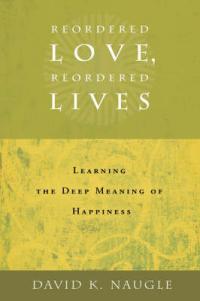 eordered Love, Reordered Lives: Learning the Deep Meaning of Happiness David K. Naugle (Eerdmans) $18.00 Well. This wonderful, rich, provocative, interesting, important book came out a few months before Smith’s Desiring… and it covers (in somewhat different language and tone) some very similar material. It is clear they are both traveling in some similar circles, with similar influences and insights. Not only do they both allow their friends to use rather intimate nicknames — James K.A. goes by Jamie, and Professor David goes by Davey — they both have studied Dooyeweerd and other Dutch Reformed philosophers, have written about the notion of worldview, and both are excellent, excellent teachers. Davey spends a lot of time with undergrads and teaches a lot — and has learned to take deep, mature, and important stuff and help convey it to ordinary, thoughtful folks. They both love Augustine (and both have epigrams from the 4th century Bishop in their books.) As John Witvliet of the Calvin Institute on Christian Worship notes, “Naugle’s candid discussion of the disordered human condition is particularly crucial for explaining just how dramatic and transformative the gospel really is.”
eordered Love, Reordered Lives: Learning the Deep Meaning of Happiness David K. Naugle (Eerdmans) $18.00 Well. This wonderful, rich, provocative, interesting, important book came out a few months before Smith’s Desiring… and it covers (in somewhat different language and tone) some very similar material. It is clear they are both traveling in some similar circles, with similar influences and insights. Not only do they both allow their friends to use rather intimate nicknames — James K.A. goes by Jamie, and Professor David goes by Davey — they both have studied Dooyeweerd and other Dutch Reformed philosophers, have written about the notion of worldview, and both are excellent, excellent teachers. Davey spends a lot of time with undergrads and teaches a lot — and has learned to take deep, mature, and important stuff and help convey it to ordinary, thoughtful folks. They both love Augustine (and both have epigrams from the 4th century Bishop in their books.) As John Witvliet of the Calvin Institute on Christian Worship notes, “Naugle’s candid discussion of the disordered human condition is particularly crucial for explaining just how dramatic and transformative the gospel really is.”
I agree. In the hands of writers like Jamie and Davey, the old “our hearts are restless until they rest in Thee” line comes alive, is seen as a powerful counter to the confusions of our times, and the key to a multi-dimensional, relevant and radical Christian spirituality. Wow, this is great, great stuff. Anybody reading Smith should pick up Reordered Love, and anyone who has taken our advice on this — we’ve raved about it before — should follow up Naugle with a few of Smith’s important works. Do it! It is a “rightly ordered” choice that will help rid you of disorder. I promise.
D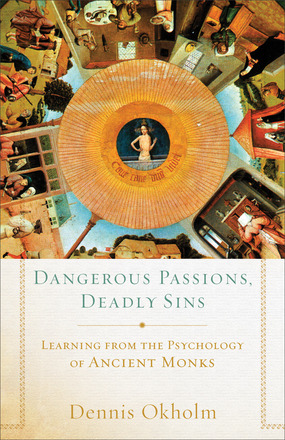 angerous Passions: Deadly Sins: Learning from the Psychology of Ancient Monks Dennis Okholm (Brazos Press) $16.99 Smith, as I gather you now realize, makes a bit deal about the “loving” nature of the heart — that we come to desire certain things, we love sometimes the wrong things, and we are transformed less by data and information then by images and seductive longings. I think this brilliant work fits right in!
angerous Passions: Deadly Sins: Learning from the Psychology of Ancient Monks Dennis Okholm (Brazos Press) $16.99 Smith, as I gather you now realize, makes a bit deal about the “loving” nature of the heart — that we come to desire certain things, we love sometimes the wrong things, and we are transformed less by data and information then by images and seductive longings. I think this brilliant work fits right in!
Once again, Brazos Press gives us a remarkable, learned, thoughtful book that can help the church universal. Okholm, an evangelical with a PhD from Princeton, who teaches at Azusa Pacific and Fuller Theological Seminary, is a pastor at Holy Trinity Anglican, and a Benedictine oblate. I love this ecumenical mash-up, and this book — the subtitle says it nicely — does what few books do well: bringing the ancient insights of the church Fathers and Mothers into dialogue with modern authors and our postmodern milieu. This really is a book about how the ancients viewed the seven deadly sins, and it may be the most magisterial book on this topic yet. One reviewer has called it a “tour de force of early Christian monastic psychology and theology.” Another says it is “wise, accessible…brims with insight…practical and profitable.”
Gary Moon writes of Dangerous Passions, Deadly Sins,
Dennis Okholm reminds us of the classic nature of what is at the heart of humans — a tendency to move away from the heart of God — and the fact that some of the beset Christian psychologists lived before modern psychology was born.
S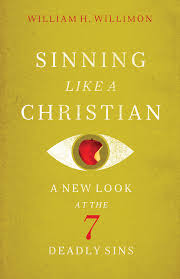 inning Like a Christian: A New Look at the 7 Deadly Sins William Willimon (Abingdon) $14.99 I am a fan of former Bishop Will Willimon, who has an lovely elegance and profundity of his clear, literate sermons, and good, practical theology. He usually emphasize something that Jamie Smith did in his Hearts & Minds Lectures, namely, that the church has a very, very important role in forming the desires and habits and hopes and visions of the people of God. Spiritual formation happens mostly in church, in community, and (for better or worse) is shaped by the congregation’s liturgy. Worship — directed towards the Triune God or directed towards false gods in the culture — does something to us. If we are called to be transformed as Romans 12:1-2 says (in our bodies, by the renewal of our minds, non-conformed to the culture, expressing worship in all of life) we must concern ourselves with not only proper and effective worship, but the insidious ways sin creeps in and idols take hold. This is a matter of reflecting together about virtue and brokenness.
inning Like a Christian: A New Look at the 7 Deadly Sins William Willimon (Abingdon) $14.99 I am a fan of former Bishop Will Willimon, who has an lovely elegance and profundity of his clear, literate sermons, and good, practical theology. He usually emphasize something that Jamie Smith did in his Hearts & Minds Lectures, namely, that the church has a very, very important role in forming the desires and habits and hopes and visions of the people of God. Spiritual formation happens mostly in church, in community, and (for better or worse) is shaped by the congregation’s liturgy. Worship — directed towards the Triune God or directed towards false gods in the culture — does something to us. If we are called to be transformed as Romans 12:1-2 says (in our bodies, by the renewal of our minds, non-conformed to the culture, expressing worship in all of life) we must concern ourselves with not only proper and effective worship, but the insidious ways sin creeps in and idols take hold. This is a matter of reflecting together about virtue and brokenness.
And so, reflecting on how we think about sin, how we are misinformed and misinformed by idols and the distortions of our virtues, really is something we must talk about. Willimon, with his famous Duke U philosophy buddy Stanley Hauerwas, always has much to say about how embodied virtue in the way of Christ is shaped in community. Here, he gives this fresh take on the propensity to sin, and what it means when Christians sin. This updated edition is a really good resource — as it says on the back, “penetrating observations will be welcomed by readers who are dissatisfied with shallow, feel-good Christianity (from the left or the right…)” It includes discussion questions. If you thought that the serious Okholm one seemed a bit much, try this.
C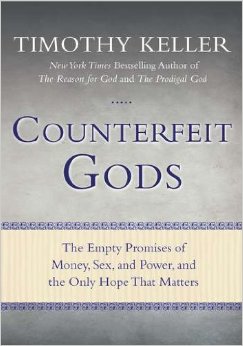 ounterfeit Gods: The Empty Promises of Money, Sex, and Power and the Only Hope That Matters Timothy Keller (Dutton) $15.00 This is not new, and yet it just cries out to be mentioned whenever we do cultural analysis about the things that most seduce us. I have long recommended Richard Foster’s powerful, thorough study of materialism, Freedom of Simplicity (HarperOne; $13.99) and his very useful, and nearly prescient book The Challenges of the Disciplined Life: Christian Reflections on Money, Sex & Power (HarperOne; $14.99.) This powerful little book by Keller — who does ministry at the heart of the empire, near Wall Street and Broadway, I might add) — is up to date, brief, and offers the centrality of sanctification through the cross and grace of Christ as the antidote to these misguided loves. Although Foster is one of my favorite writers, and he is wise in his cultural discernment and spiritual direction, Keller is a bit more philosophical and a bit more astute about the idolatrous lures of the age. Highly recommended.
ounterfeit Gods: The Empty Promises of Money, Sex, and Power and the Only Hope That Matters Timothy Keller (Dutton) $15.00 This is not new, and yet it just cries out to be mentioned whenever we do cultural analysis about the things that most seduce us. I have long recommended Richard Foster’s powerful, thorough study of materialism, Freedom of Simplicity (HarperOne; $13.99) and his very useful, and nearly prescient book The Challenges of the Disciplined Life: Christian Reflections on Money, Sex & Power (HarperOne; $14.99.) This powerful little book by Keller — who does ministry at the heart of the empire, near Wall Street and Broadway, I might add) — is up to date, brief, and offers the centrality of sanctification through the cross and grace of Christ as the antidote to these misguided loves. Although Foster is one of my favorite writers, and he is wise in his cultural discernment and spiritual direction, Keller is a bit more philosophical and a bit more astute about the idolatrous lures of the age. Highly recommended.
P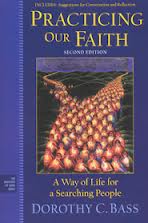 racticing Our Faith: A Way of Life for a Searching People (second edition) edited by Dorothy C. Bass (Jossey Bass) $19.95 When this first volume came out in the late 1990s I predicted that it would create an avalanche of new books and new ways of talking about the uniquely Christian things we do, practices, habits, ways of leaning into life with idiosyncratic stuff we do. I said it was prophetic, important, yada, yada, yada. And I was partially correct: it was very well reviewed and a whole series of books spun off it it, offering uniquely Christian insights into living before God, with spiritually attuned ways of engaging our bodies, music, money, time, speaking, caring for children, and more. We respect the ecumenical, mature, and lovely writing that is on offer in each of the “Practices of Faith Series.” But this is the one that started it all, and we couldn’t be happier to be reminded of it when Jamie cited it as an example of the “liturgical” ways of being in the world. Here is a considerable re-take on the language of spiritual disciplines, practices are communal and outwardly tangible. There are chapters here on how to think about dying, sabbath, offering testimony, being hospitable, ways of doing “household economics” and more. The more general chapters (by Bass and Craig Dykstra) on thinking about practices, and, well, practicing them, are very generative and thoughtful.
racticing Our Faith: A Way of Life for a Searching People (second edition) edited by Dorothy C. Bass (Jossey Bass) $19.95 When this first volume came out in the late 1990s I predicted that it would create an avalanche of new books and new ways of talking about the uniquely Christian things we do, practices, habits, ways of leaning into life with idiosyncratic stuff we do. I said it was prophetic, important, yada, yada, yada. And I was partially correct: it was very well reviewed and a whole series of books spun off it it, offering uniquely Christian insights into living before God, with spiritually attuned ways of engaging our bodies, music, money, time, speaking, caring for children, and more. We respect the ecumenical, mature, and lovely writing that is on offer in each of the “Practices of Faith Series.” But this is the one that started it all, and we couldn’t be happier to be reminded of it when Jamie cited it as an example of the “liturgical” ways of being in the world. Here is a considerable re-take on the language of spiritual disciplines, practices are communal and outwardly tangible. There are chapters here on how to think about dying, sabbath, offering testimony, being hospitable, ways of doing “household economics” and more. The more general chapters (by Bass and Craig Dykstra) on thinking about practices, and, well, practicing them, are very generative and thoughtful.
Some of our conversation with Smith touched on this question of how worship shapes us well (this is the heart of Imagining the Kingdom) but he was quick to invite us to realizing liturgies, practices, and habit-forming rituals are woven into the fabric of our daily life as discipleship in God’s world. This book helps open up that conversation considerably. This includes suggestions for conversation and further reflection.
We also stock the teen version (co-written by some church teens) called Way to Live: Christian Practices for Teens (Upper Room $18.00) and the amazing, and under-utilized edition for hip, young adults, On Our Way: Christian Practices for Living a Whole Life (Upper Room $17.00.)
D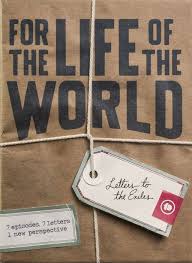 VD For the Life of the World: Letters to the Exiles (Acton Institute) regular price $59.99 our sale price $35.00
VD For the Life of the World: Letters to the Exiles (Acton Institute) regular price $59.99 our sale price $35.00
No, no, I’m not just slipping this in because we’re on the FLOW bandwagon: this really does offer a way of being in the world that is somehow idiosyncratic, from thinking about work to family to art to law, and living into the wonder and mystery of it all. This is allusive and creative and fun, and although I’ve reviewed it extensively already, had to note that anyone reading Jamie Smith, or pondering the nature of uniquely Christian ways of life in the world, resisting disorderly affections and the distortions of idols, will surely find this insightful, provocative, and useful. Yes!
See my long BookNotes review of the For the Life of the World DVD HERE. See the cool trailer, HERE.
BookNotes
DISCOUNT
ANY ITEM MENTIONED
20% off
order here
takes you to the secure Hearts & Minds order form page
just tell us what you want
inquire here
if you have questions or need more information
just ask us what you want to know
Hearts & Minds 234 East Main Street Dallastown, PA 17313 717-246-3333

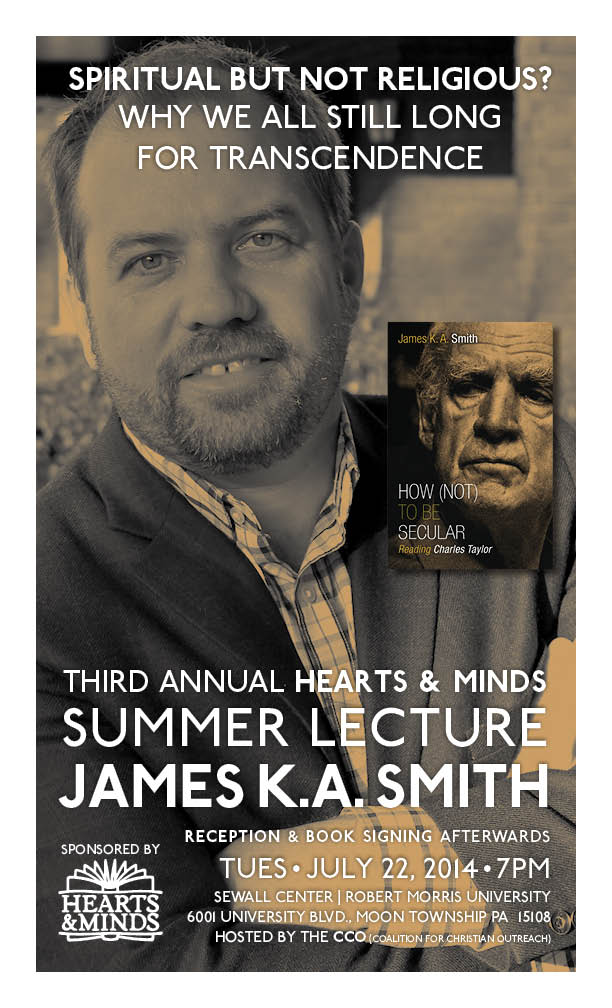 If you are friends with either Beth or I on Facebook, or a member of the Hearts & Minds Facebook group, or follow me on twitter, well, then, you know we are sponsoring a free public lecture with James K.A. Smith this Tuesday, July 22nd, in Pittsburgh. (See the poster below.)
If you are friends with either Beth or I on Facebook, or a member of the Hearts & Minds Facebook group, or follow me on twitter, well, then, you know we are sponsoring a free public lecture with James K.A. Smith this Tuesday, July 22nd, in Pittsburgh. (See the poster below.)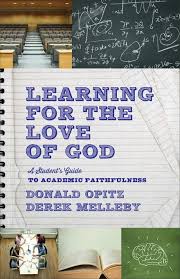 the tables anchored by the lovely little hardback Make College Count by Derek Melleby (Baker; $12.99) and Learning for the Love of God: A Guide for Students by Derek Melleby and Donald Opitz (Brazos Press; $14.99.) We will be with Steve Lutz, too, and of course will promote his great book for collegiates, King of the Campus (House Studio; $14.99.) We have a lot of books on how to help students gain a vision for their careers and callings, with titles on vocation and work, of course promoting Steve Garber’s rich, eloquent Visions of Vocation: Common Grace for the Common Good and the new paperback edition of Every Good Endeavor: Connecting Your Work to God’s Work by Tim Keller and Katherine Leary Aldsdorf (Dutton; $16.00.)
the tables anchored by the lovely little hardback Make College Count by Derek Melleby (Baker; $12.99) and Learning for the Love of God: A Guide for Students by Derek Melleby and Donald Opitz (Brazos Press; $14.99.) We will be with Steve Lutz, too, and of course will promote his great book for collegiates, King of the Campus (House Studio; $14.99.) We have a lot of books on how to help students gain a vision for their careers and callings, with titles on vocation and work, of course promoting Steve Garber’s rich, eloquent Visions of Vocation: Common Grace for the Common Good and the new paperback edition of Every Good Endeavor: Connecting Your Work to God’s Work by Tim Keller and Katherine Leary Aldsdorf (Dutton; $16.00.) 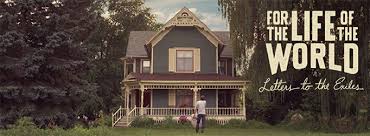 things in popular culture and, empowered by God’s grace and Spirit, dive deep into the real world around us, messy as it is. Almost like the Jewish exiles of old, we are called to help the flourishing of our world; we are called to know the world around us. That
things in popular culture and, empowered by God’s grace and Spirit, dive deep into the real world around us, messy as it is. Almost like the Jewish exiles of old, we are called to help the flourishing of our world; we are called to know the world around us. That 
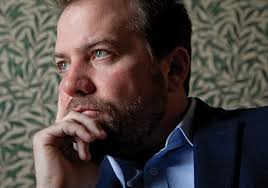 As I mentioned, Professor James K.A. Smith captures much about contemporary culture, and he is very much in tune with music and art and architecture and movies; he experiences
As I mentioned, Professor James K.A. Smith captures much about contemporary culture, and he is very much in tune with music and art and architecture and movies; he experiences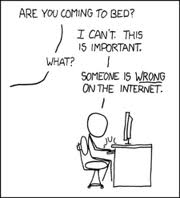 One man, from a Mediterranean country, would not allow me to blame the Palestinians for anything; it was all the Zionist’s fault. Another friend of Jewish descent had an equally one-sided view. Neither would budge and although both were followers of Jesus, they seemed utterly disinterested as I tried to interject into the conversation His holy call to peacemaking. Like many these days, it seemed as if their faith didn’t equip them for even having open minds or tender hearts, let alone unconventional solutions: their minds were made up, and the other guys were to blame.
One man, from a Mediterranean country, would not allow me to blame the Palestinians for anything; it was all the Zionist’s fault. Another friend of Jewish descent had an equally one-sided view. Neither would budge and although both were followers of Jesus, they seemed utterly disinterested as I tried to interject into the conversation His holy call to peacemaking. Like many these days, it seemed as if their faith didn’t equip them for even having open minds or tender hearts, let alone unconventional solutions: their minds were made up, and the other guys were to blame.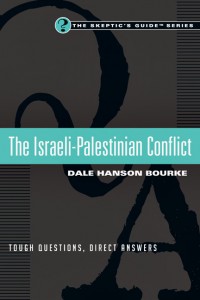 he Skeptic’s Guide Series: The Israeli-Palestinian Conflict Dale Hanson Bourke (IVP) $13.00 First let me say that I’ve used other books in this “Skeptic Guide Series” and they are each excellently done. Bourke has traveled all over the world, is a first-class journalist, and while she has deep concerns about peace, justice, compassion, and other Christian virtues, her desire for fairly and clearly reporting the facts and explaining the background of the issues at hand are impeccable. I have admired her for the early books she released, and for her days as editor of the Today’s Christian Woman. (Don’t ask, but I used to read it, okay?) She’s a darn good writer.
he Skeptic’s Guide Series: The Israeli-Palestinian Conflict Dale Hanson Bourke (IVP) $13.00 First let me say that I’ve used other books in this “Skeptic Guide Series” and they are each excellently done. Bourke has traveled all over the world, is a first-class journalist, and while she has deep concerns about peace, justice, compassion, and other Christian virtues, her desire for fairly and clearly reporting the facts and explaining the background of the issues at hand are impeccable. I have admired her for the early books she released, and for her days as editor of the Today’s Christian Woman. (Don’t ask, but I used to read it, okay?) She’s a darn good writer. , and has done on-the-ground research. That she firstly thanks the deeply
, and has done on-the-ground research. That she firstly thanks the deeply 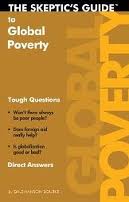
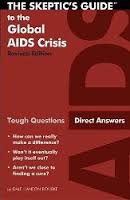 Another source of anguish for some of us this week has been some of the controversies that came into the spotlight this week regarding the detention centers for children of immigrants in Arizona. Several related issues have come up in the news, and have been debated on-line in the last few days. Again, few of those with whom I was in lengthy debates (who had strong opinions, based on one news report, about Who Was To Blame for some of the sad situation and failing policies there) seemed to have much actual data about the very thing we were discussing. I sensed that my interlocutors didn’t know much about the details or texture of the people or places involved, but, again, I didn’t, really, either. Once more, I realized that my own passion — not unlike a whole lot of people also posting on the web — gets ahead of me, and I have deep feelings and opinions, but sometimes not a lot of facts. Do you relate? We need answers!
Another source of anguish for some of us this week has been some of the controversies that came into the spotlight this week regarding the detention centers for children of immigrants in Arizona. Several related issues have come up in the news, and have been debated on-line in the last few days. Again, few of those with whom I was in lengthy debates (who had strong opinions, based on one news report, about Who Was To Blame for some of the sad situation and failing policies there) seemed to have much actual data about the very thing we were discussing. I sensed that my interlocutors didn’t know much about the details or texture of the people or places involved, but, again, I didn’t, really, either. Once more, I realized that my own passion — not unlike a whole lot of people also posting on the web — gets ahead of me, and I have deep feelings and opinions, but sometimes not a lot of facts. Do you relate? We need answers! series called, simply, The Skeptic’s Guide Series: Immigration (IVP; $13.00.) I have been involved in one way or another in some immigration right’s issues over the years, and have great appreciation for (may I say it again?) how darn complicated some of these policy matters are. Still, at the very least, as people of faith (and others citizens) develop their opinions on things, besides a thoughtful, Biblically-informed worldview, we do need some basic facts. We need to know the terms being used in the field, and what reporters and solid activists mean by this or that. If you are like me, you will welcome this fine compendium of helpful definitions, a few easy-to-follow charts, a bit of historical background, and good answers, presented in a way which is fair-minded, thoughtful, concise and reliable.
series called, simply, The Skeptic’s Guide Series: Immigration (IVP; $13.00.) I have been involved in one way or another in some immigration right’s issues over the years, and have great appreciation for (may I say it again?) how darn complicated some of these policy matters are. Still, at the very least, as people of faith (and others citizens) develop their opinions on things, besides a thoughtful, Biblically-informed worldview, we do need some basic facts. We need to know the terms being used in the field, and what reporters and solid activists mean by this or that. If you are like me, you will welcome this fine compendium of helpful definitions, a few easy-to-follow charts, a bit of historical background, and good answers, presented in a way which is fair-minded, thoughtful, concise and reliable.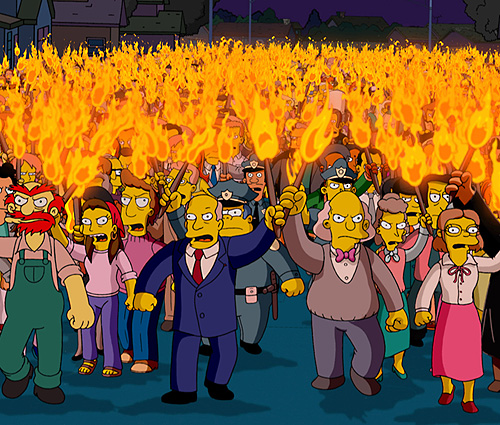
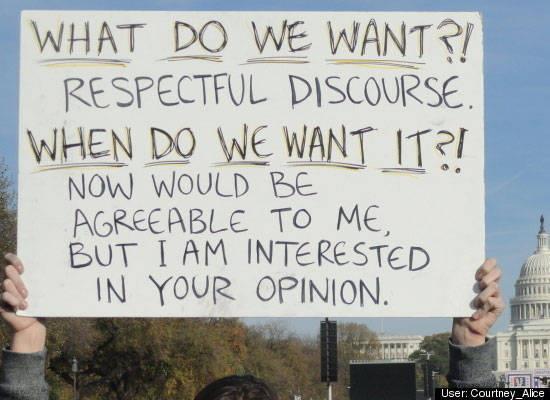
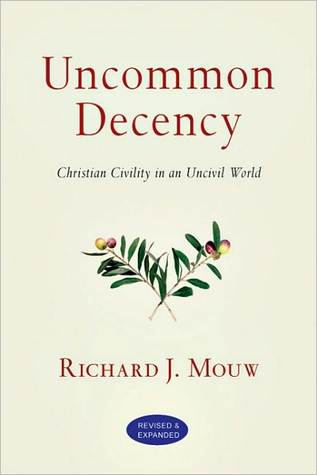
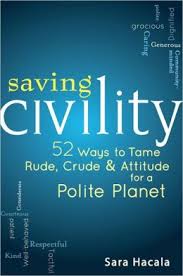
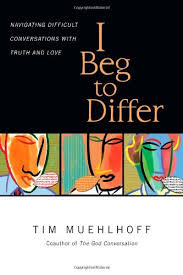
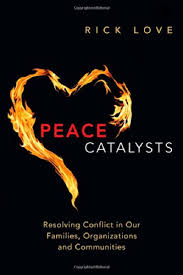 eace Catalysts: Resolving Conflict in Our Families, Organizations and Communities Rick Love (IVP) $15.00 I have mentioned Rick Love before, a courageous, Spirit-filled former missionary who, in his conversations and relationships with Muslims (including some very strict and even hostile ones) grew to not only love them, but to move increasingly to be interested in global peace-making, bridge-building, conflict-resolution and the like. This backstory has equipped him to learn remarkably well profound skills that we can now all learn about. This is a very good book on conflict and includes extraordinary stories of God’s work as we attempt to be a peace with others. This is very impressive stuff. Thanks be to God for this peace-maker who has had global experiences and invites us all to this great adventure, following Christ into the world.
eace Catalysts: Resolving Conflict in Our Families, Organizations and Communities Rick Love (IVP) $15.00 I have mentioned Rick Love before, a courageous, Spirit-filled former missionary who, in his conversations and relationships with Muslims (including some very strict and even hostile ones) grew to not only love them, but to move increasingly to be interested in global peace-making, bridge-building, conflict-resolution and the like. This backstory has equipped him to learn remarkably well profound skills that we can now all learn about. This is a very good book on conflict and includes extraordinary stories of God’s work as we attempt to be a peace with others. This is very impressive stuff. Thanks be to God for this peace-maker who has had global experiences and invites us all to this great adventure, following Christ into the world.